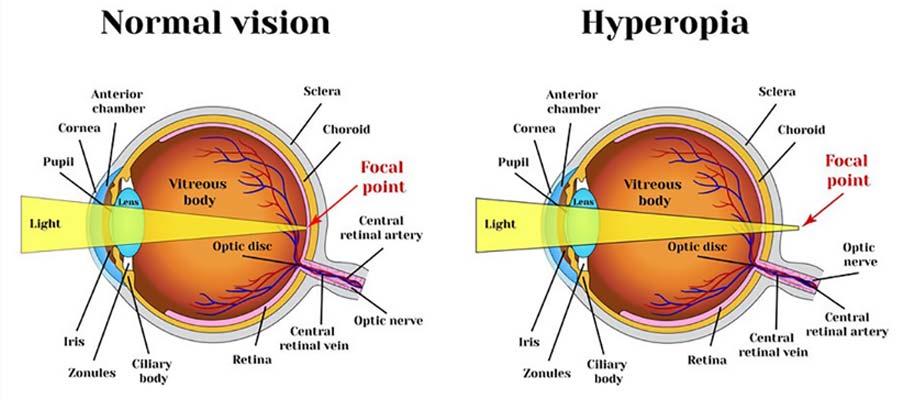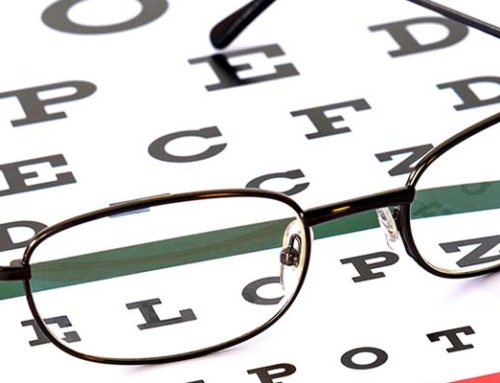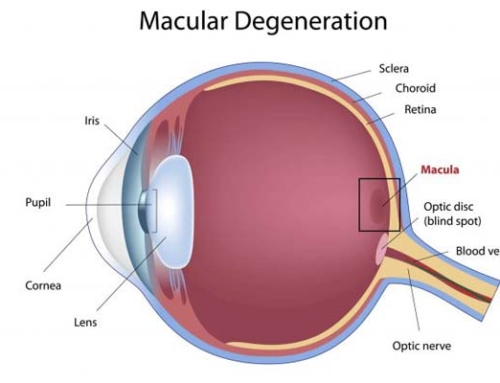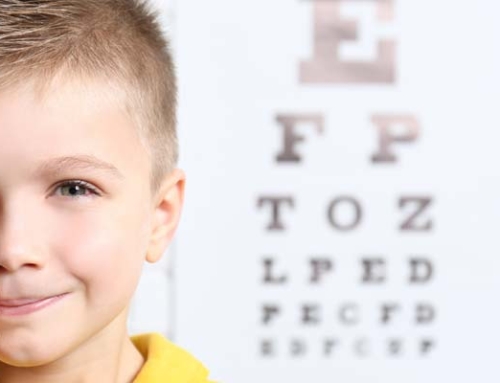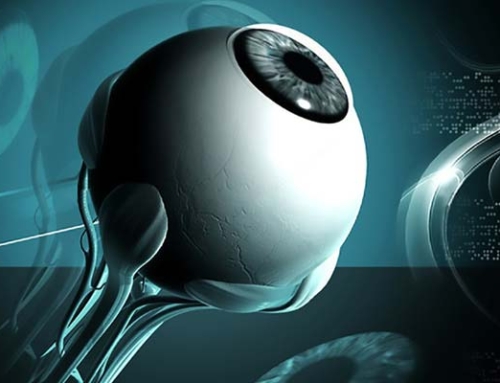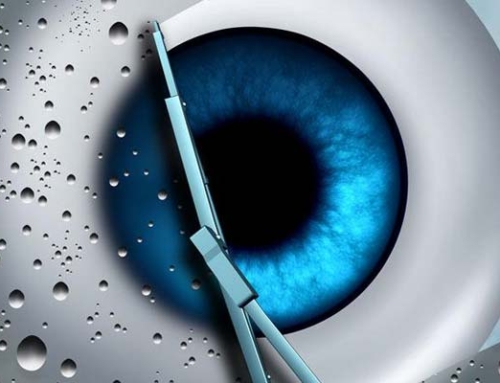Our eyes need light to be able to see. However, the eyes can see well in darkness with the help of special substances. During day and night, eyes are exposed to a various intensities of light. There are three areas in the eyes that adjust the exposure of eyes to different intensities of light:
- The pupil: it acts like the aperture of the cameras which become wider or narrower depending on the degree of light intensity. In the bright light, the pupil becomes narrow to block the passage of excessive light to the retina which is in the back of your eyes and responsible for vision. In contrast, when you are in darkness, the pupil will open wide to allow as much light as possible to enter to your retina.
- Rods and cones: these are two different types of cells involved in seeing light. Cone cells need bright light to be able to perceive colour and fine details, while rod cells can see in darkness or in very low light but they see in low resolution and can only perceive black and white.
- Photopigments: They are chemicals found in rods and cones and respond to light exposure by creating electrical changes that is perceived by the brain. In Darkness the photopigment Rhodopsin is regenerated by a process known as “adaptation to dark”, which allows the eyes to be able to see when there is not enough light in the background.
If you have problems with driving at night, this may be due to night vision impairment which may occur due to several reasons. A condition called cataract is one of the causes of this problem. It is a painless condition when the eye lens starts to lose their clarity due to the build-up of debris as a result of cells turnover by age. Decreased night vision including problems with driving at night is the first sign of this problem.
Retinopathy is another reason for the difficulty of driving at night. It is a condition common in diabetic patients when the high level of glucose will be toxic to blood vessels supplying the eyes and retina leading to injuries and vision problems.
Sometimes, being exhausted due to work-related tension and daily stressful events can cause visual fatigue which makes you unable to concentrate while you are driving. The condition can be also called eye strain.
Vitamin A deficiency is one of the most important causes of night vision disturbances.
The question now is should you visit an eye specialist to examine your eyes if you have problems with night vision?
Actually, the answer is yes. If you have a continuous feeling of inability to see clearly at night, particularly when you have risk factors such as diabetes, it is necessary that you check your eyes. The doctor will test your vision and exclude problems like cataract and retinopathy. You may also need a new glasses, if you have vision problems and they can markedly improve your vision at night.

